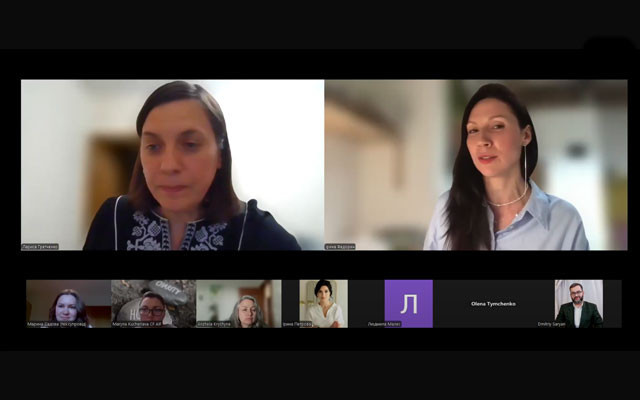
What does it mean to be a «family member»: status investigated by the chair of the UNBA Committee

Sometimes, access to a range of legal mechanisms, from inheritance and housing to one-time payments and pensions, depends on whether a person with a biological or domestic relationship is recognized as a family member.
The current challenges and problems that arise in determining family status in various areas of law were outlined by the chair of the Ukrainian National Bar Association's Committee on Family Law, Larisa Gretchenko, during an interprofessional online discussion entitled «What is a family?» The event, held on International Family Day, was organized and conducted by the Association of Family Mediators of Ukraine.
According to the speaker, Ukrainian legislation does not provide an exhaustive list of who is considered a family member. The law refers to criteria such as cohabitation, shared household, and mutual rights and obligations. At the same time, these criteria can be interpreted differently depending on the field of law.
For example, to receive benefits for housing and utility services or the status of a family member of a military serviceman, it is not enough to simply live under the same roof. It is necessary to prove that they run a joint household: joint expenses, budget, purchase of property, mutual assistance. Not only documents play an important role, but also the behavior of the parties—participation in repairs, agreements on the use of housing, joint planning of expenses.
L. Gretchenko paid particular attention to the distinction between the concepts of «one of the spouses» and «a person living as a family». Although in everyday life, a civil couple is often perceived as spouses, from a legal point of view, their status is significantly different.
Even if a man and a woman live together, raise children together, and run a joint household, without registering their marriage, they are not «husband» and «wife» in the eyes of the law. This has specific consequences. For example, such a partner cannot always claim the status of a family member of a deceased military serviceman.
To do so, they must first establish the fact of cohabitation through the courts. And even then, this will not be equivalent to marital status.
A separate section of the presentation was devoted to the status of family members of deceased military personnel. Here it is important to understand that the composition of family members depends on the specific law that defines this status.
Thus, according to the latest amendments to the Law «On Social and Legal Protection of Military Personnel and Members of Their Families», this circle may include not only widows/widowers, but also civil partners, provided that the fact of cohabitation with the deceased is confirmed by a court decision.
However, the Law «On the Status of War Veterans and Guarantees of Their Social Protection» does not provide for such an approach. It recognizes only the status of «one of the spouses who has not remarried». That is, identical circumstances but different legal consequences due to different wording of the norm.
The advocate also drew attention to examples from practice regarding the status of adult children who lived with their parents. In particular, there was a case where the daughter of a deceased soldier proved her status as a family member in order to receive social assistance. The court found that despite starting her own family after her father's death, at the time of his death she was living with him and met the criteria for family membership.
In conclusion, L. Gretchenko emphasized that confusion in terms such as «husband», «wife», «spouse», and «common-law spouse» can be costly when it comes to housing, pensions, or social benefits. It is important for advocates working on family matters not only to understand these definitions, but also to explain them clearly to their clients in order to avoid unreasonable expectations or loss of guarantees due to the absence of a court decision or adequate evidence.
© 2025 Unba.org.ua Всі права захищені
"Національна Асоціація Адвокатів України". Передрук та інше використання матеріалів, що розміщені на даному веб-сайті дозволяється за умови посилання на джерело. Інтернет-видання та засоби масової інформації можуть використовувати матеріали сайту, розміщувати відео з офіційного веб-сайту Національної Асоціації Адвокатів України на власних веб-сторінках, за умови гіперпосилання на офіційний веб-сайт Національної Асоціації Адвокатів України. Заборонено передрук та використання матеріалів, у яких міститься посилання на інші інтернет-видання та засоби масової інформації. Матеріали позначені міткою "Реклама", публікуються на правах реклами.